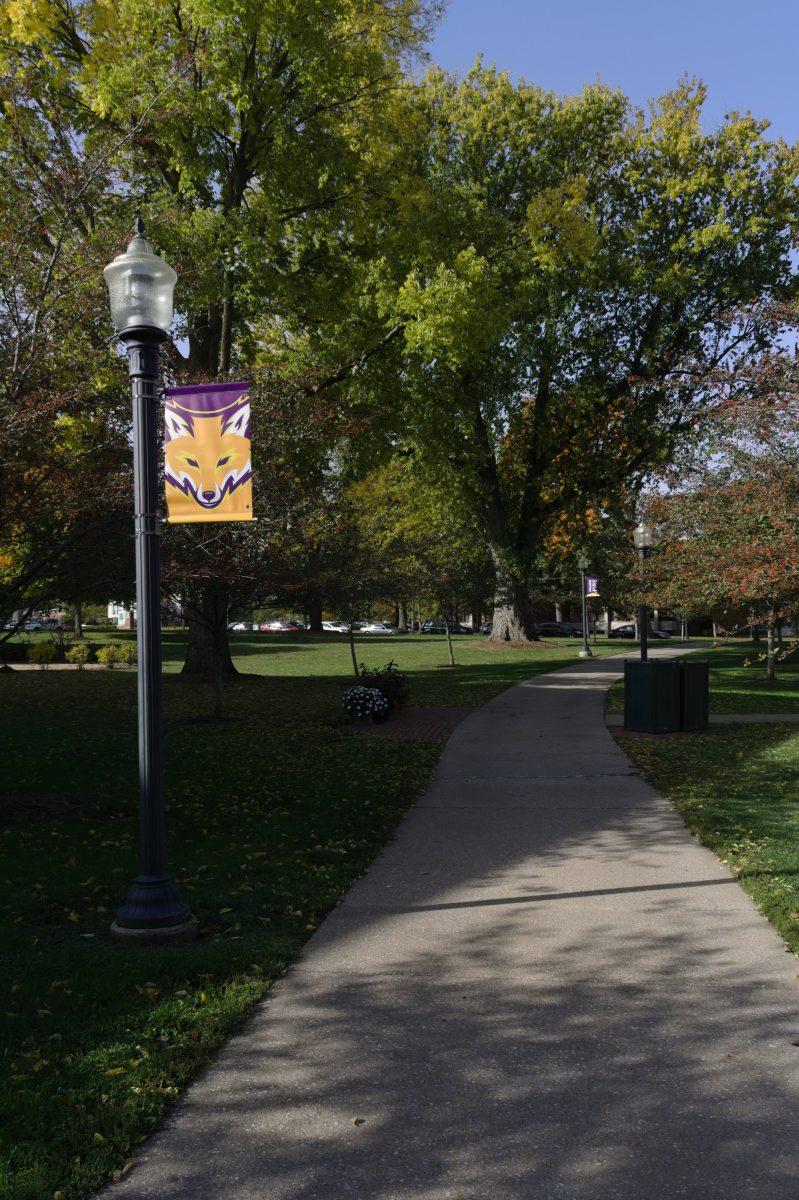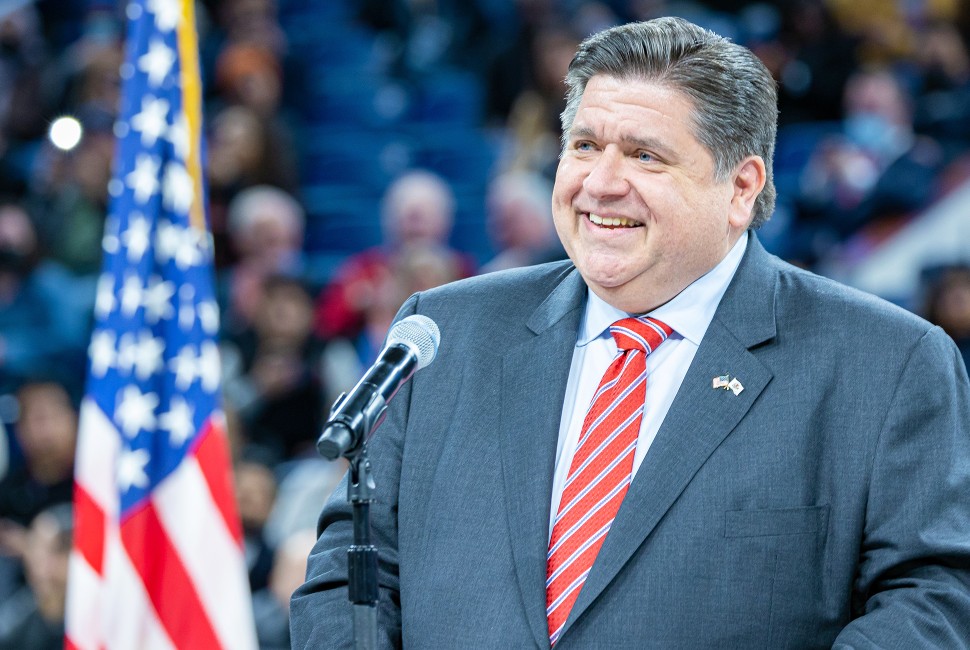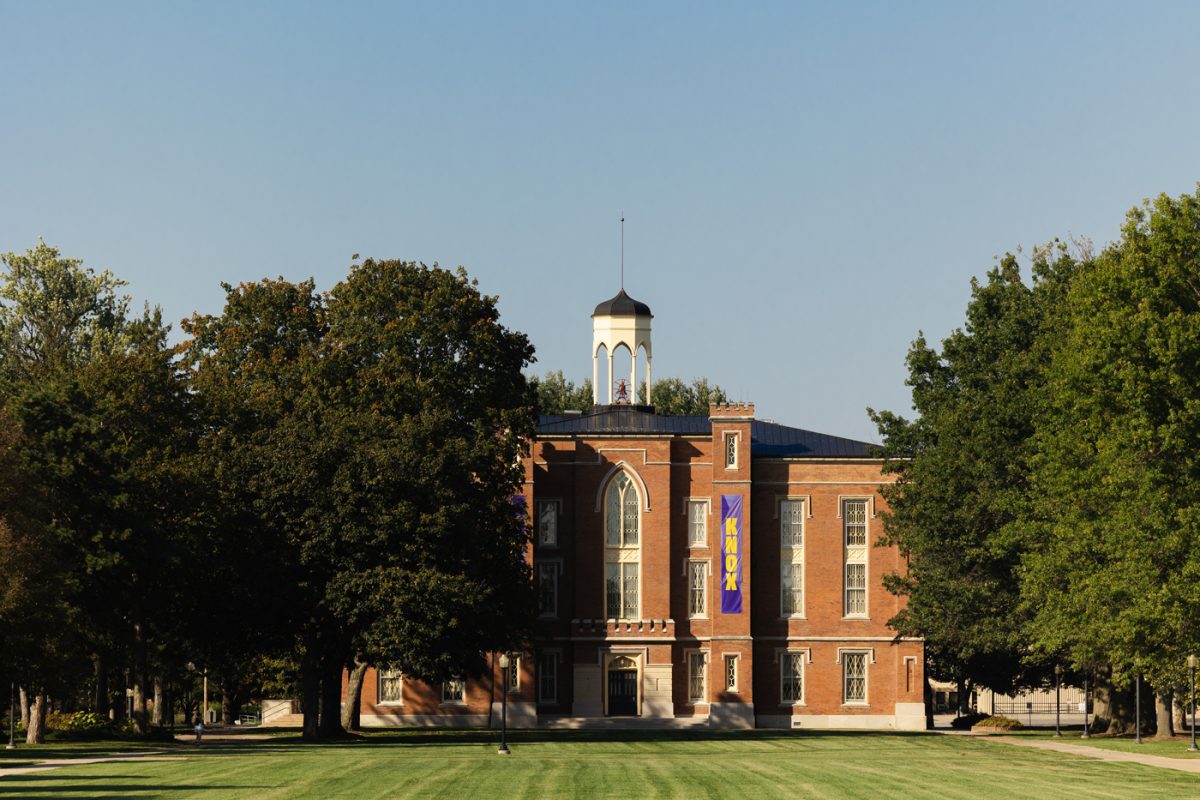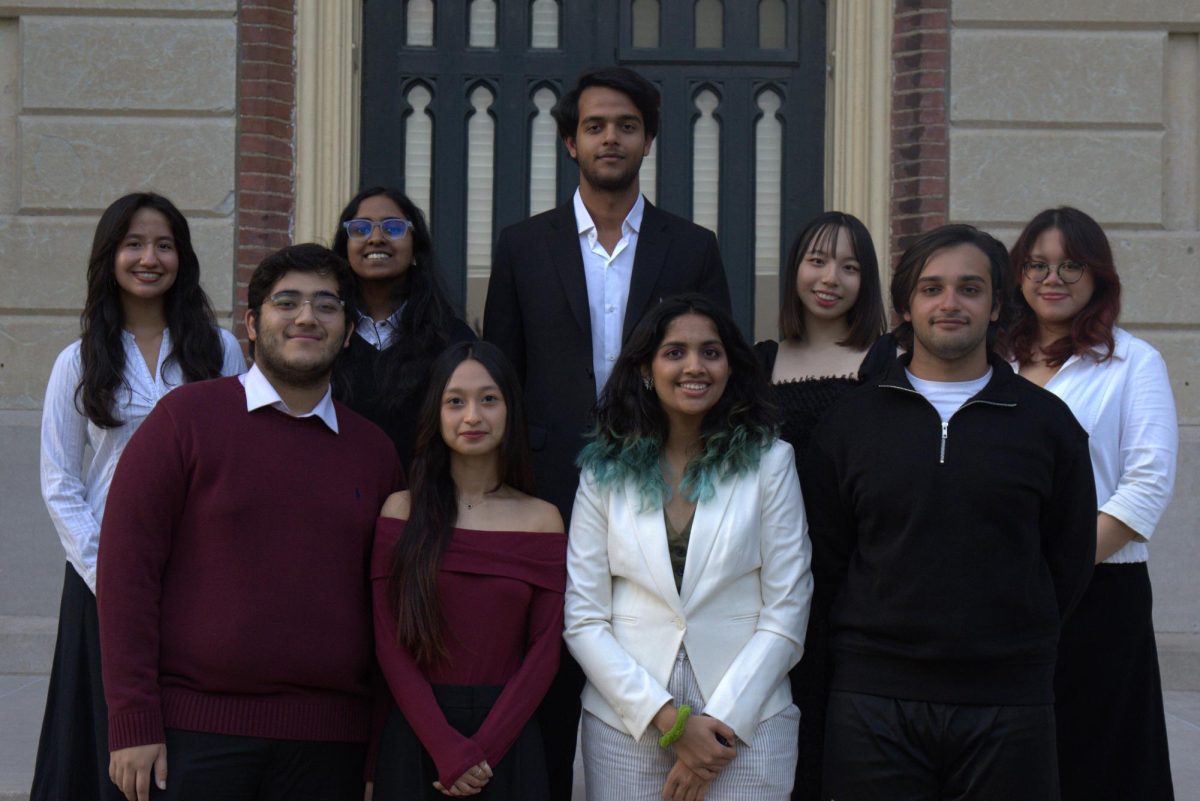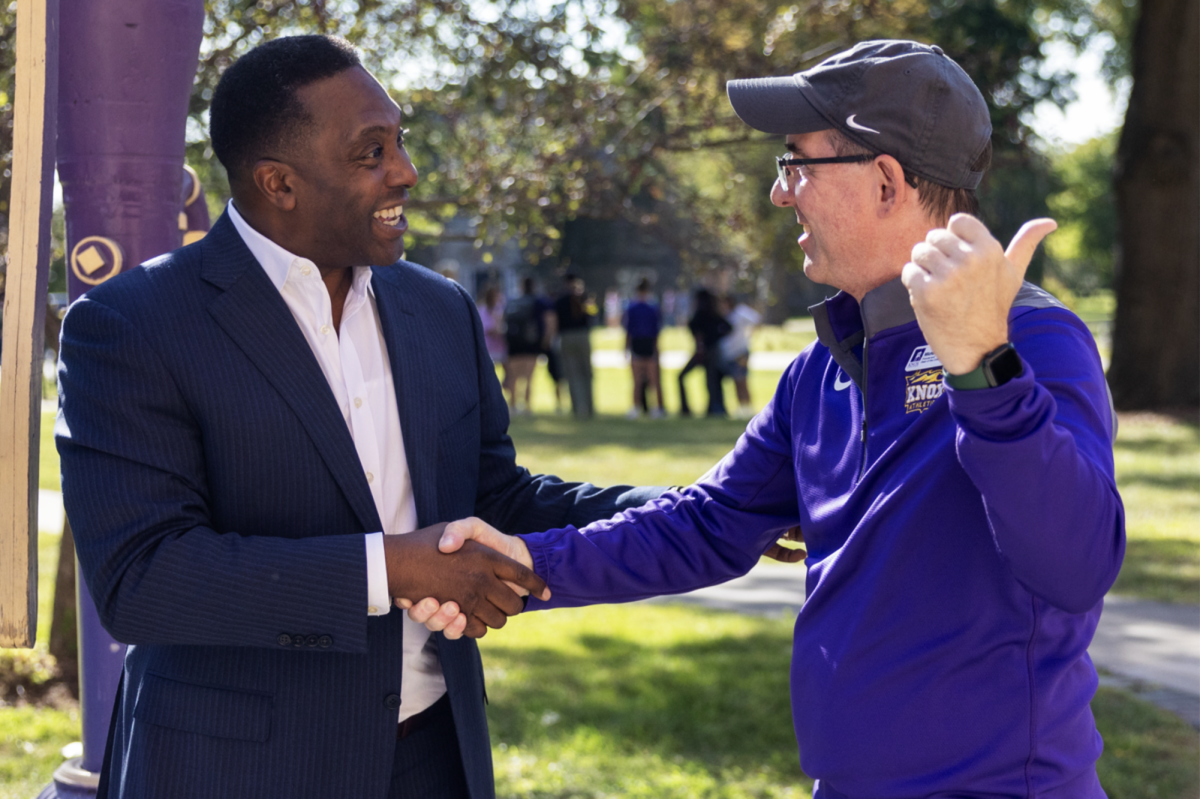Is the shortage of K-12 teachers nationwide affecting colleges and universities like Knox?
Photo by Jenna Schweikert
The ‘nationwide teacher shortage’ often topped headlines in the past two years. Why? What’s being done to fix it? How is this teacher shortage affecting higher education, specifically smaller liberal arts institutions like Knox College? The data is clear for K-12 schools, but not necessarily for higher education institutions.
In March 2022, 44% of public schools reported full or part-time teaching vacancies, according to data recorded by the National Center for Education Statistics (NCES) and reported by the U.S. Department of Education’s Institute of Education Sciences (IES). Of public schools with at least one vacancy, 61% identified the COVID-19 pandemic as one cause of increased staff vacancies.
Shortage data for higher education institutions is scarce and inconclusive, but there has been some recent fluctuation at Knox. In the 2021-2022 school year, Dr. MarQuita Baker started as the new Vice President for Student Development and Monica Keith started as the new Vice President for Advancement. Despite some fluctuation among faculty positions, Dean of the College Mike Schneider isn’t concerned.
“I think we have been very successful filling our positions. I’m very excited by all the faculty we hired this past year, we hired more than we normally do,” Schneider said. “There was very little hiring going on across academia during the two main years of the pandemic, so there are a lot of very qualified candidates out there.”
Over the summer, Mary Crawford took over as Dean of Students from Tim Foster. These dean positions—the Dean of Students, Dean of Faculty Affairs, and Dean of Curriculum and Assessment—rotate among faculty members on a 4-5 year cycle.
“I put out a call for faculty asking who wants to take a crack at this and serve your colleagues, and then you rotate back in the faculty,” Schneider said.
As the new Dean of Students, Crawford worked with Foster in a transitional period over the summer.
“I’ve been approached a couple of times over the years for different things. My main focus, no matter what’s been going on, is that I really like to interact with students. I really like undergraduate education because I really like to see students get to grow. That is really why I do what I do,” Crawford said.
The main purpose of this rotation, according to Schneider, is to ensure that faculty don’t become too removed from the classroom experience. Every year, as seniors graduate and first-years enroll, the student population shifts.
“There’s a belief that to be successful at these jobs, you need to be very close to the faculty experience. When you’ve been out of the classroom for three or four years, you begin to forget very quickly, and you don’t know this current group of students as well,” Schneider said. “The rotation allows each one of those individual faculty to bring their unique perspective to a job and apply it in this administrative context.”
Schneider also added that serving as administration gives faculty members more insight to the inner workings of the college.
Schneider himself worked as Dean of Students about 10 years ago, after which he returned to faculty before taking his current position as Dean of the College. Although Schneider believes Knox is not understaffed in faculty, some positions still remain unfilled, like in the journalism and business departments. These fields are challenging to hire in, according to Schneider. Despite hardships in these fields, Schneider says Knox has been successful in hiring for difficult positions like clinical psychology.
The process of hiring faculty begins with a small search committee consisting of members inside the hiring department and members outside the department. The search committee reads the applications, conducts interviews, and organizes candidates’ tours of campus.
“Every faculty search has to have public events, so there’s a teaching demonstration, or a public lecture, or creative work presentation. We try to invite students, faculty, and staff who would work in that area to attend these public events and provide feedback,” Schneider said.
As to hiring at Knox, Crawford said she hadn’t been in the position long enough to develop an understanding yet, but isn’t overly concerned.
“Around the country, people have been looking at their lives and reprioritizing what they think is important. That’s affected a lot of different aspects, and I don’t think academia is really any different from that,” Crawford said.
Schneider agrees, but thinks that ‘the great resignation’ may in fact be beneficial for Knox.
“I know that we sometimes think about Galesburg as a quiet country place out of the way and I think there’s some truth to that, but I also think that the pandemic has given people a lot of time to reflect on how they want to live their lives,” Schneider said. “Right now, I think a residential liberal arts college is a great place to work. I feel calm, confident or comfortable to just say who we are and what we are.”
Schneider not only feels comfortable with what Knox College is as a school, but is also excited for the prospects new faculty bring.
“I’m always very enthusiastic about people we do hire. They bring a lot of skills and talents and they mesh well with what this environment is,” Schneider said.
Data sourced from NCES press release:

